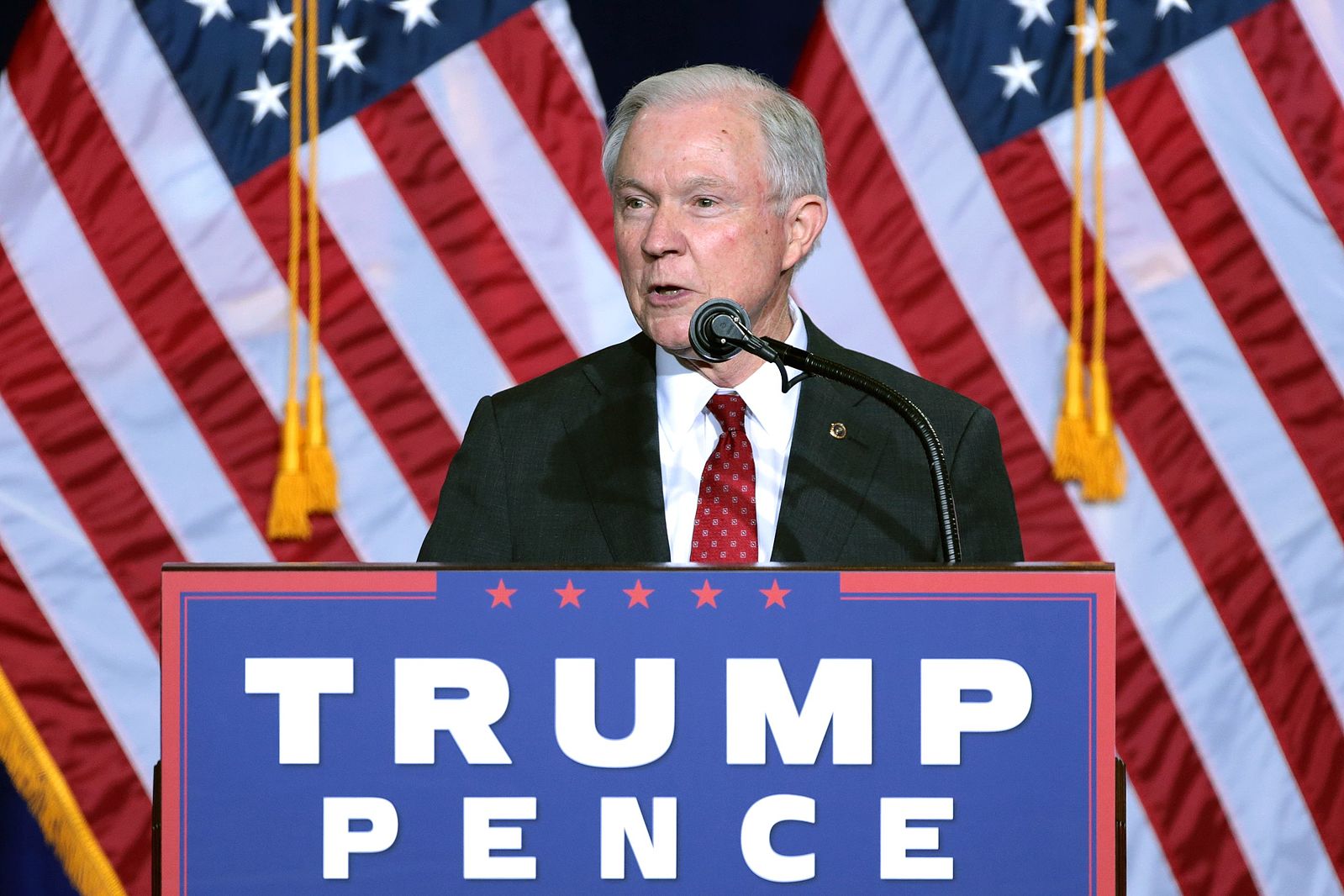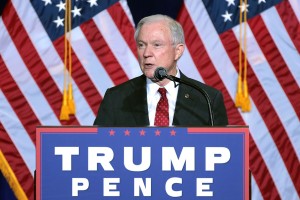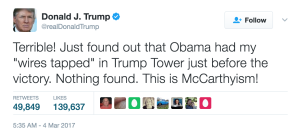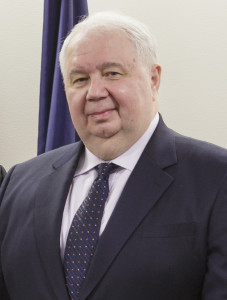Jeff Sessions and Relationships with Russia
 US Attorney General Jeff Sessions
https://flic.kr/p/KP7cjt
US Attorney General Jeff Sessions
https://flic.kr/p/KP7cjt

Image courtesy of Gage Skidmore https://flic.kr/p/KP7cjt
On March 1st, allegations arose of US Attorney General, Jeff Sessions, communicating with the Russian ambassador to the US during Trump’s campaign. This occurred after Sessions was questioned about relationships between Trump’s administration and The Kremlin during his confirmation hearings in January, to which he claimed he had no contact with Russian authorities. Now, Democratic members of Congress are urging Sessions to resign, not only because of his contact with Russia, but also because he lied under oath during the hearings. Yet Sessions claims that the he met with Russian ambassador to the US, Sergey Kislyak, as a senior member of the Armed Services Committee and not as a member of Trump’s campaign. If this is the case, it should not affect his integrity as attorney general, and should annul all accusations of lying under oath, as he was specifically asked about communications with Russia during the campaign. Sessions was supported by the director of public affairs for the Department of Justice, who, in a statement to Buzzfeed, agreed that Sessions answered the question he was asked at the hearing truthfully. The director also noted that as a senior member of the Armed Services Committee, Sessions met with over 25 ambassadors throughout Trump’s campaign. Typically the attorney general would oversee such an investigation. However, because Sessions is the attorney general, he has agreed to rescue himself, thus placing the investigation in the hands of the deputy attorney general. Presumably, Sessions hopes this decision will save him from forcing to resign.
Sessions is not the only official related to Trump’s campaign who has proven to have ties with Russia. The most notorious case so far was Trump’s national security advisor’s, Michael Flynn, connections with, once again, Sergey Kislyak, resulting in Flynn’s resignation in February. Along with Jared Kushner, Trump’s son-in-law, Flynn met with Kislyak in December to “establish a more open line of communication [with Russia] in the future.” Flynn and Kislyak continued to have phone conversations regarding the topic. What is different about Flynn and Sessions relationships with Kislyak is that, at the time, Flynn did not have legitimate reason to meet with Kisylak. Flynn publicly denied any relationships to Russia until the meetings were made public. Rex Tillerson, Secretary of State and Exxon Mobil CEO, has a historic public friendship with Putin, receiving the Order of Friendship award from Putin in 2013 after Exxon’s deal with Russia to explore oil in Russia. Trump’s former campaign chairman, Paul Manafort, had close ties with former Ukrainian president Viktor Yanukovych, a member of the pro-Kremlin Party of Regions. Upon news surfacing that Manafort had received off-the-book funds from the Party of Regions, Trump fired him. Carter Page, who Trump had announced, and later denied, as a former policy advisor, has publicly announced support of Putin. Roger Stone, who, although leaving the campaign, continues to serve as an advisor to Trump, has admitted to have communications with WikiLeaks founder Julian Assange regarding Hilary Clinton’s e-mail leak. Stone, Manafort, Page, and Flynn continue to be investigated by the FBI for their relationships with Russian officials, and their role in possible Russian interference in the election. Furthermore, let us not disregard Trump’s own relationship with Russia. From 2013-2015, Trump claimed to now only know, but be friends with Putin. Yet in July 2016, when asked about his relationship with Putin at a news conference, Trump responded by saying “I never met Putin, I don’t know who Putin is… I have nothing to do with Putin. I’ve never spoken to him.” Trump has continued to deny any relationship with Putin or Russian officials.

Unfortunately for Trump, allegations of ties between his administration and the Kremlin have disproportionately clouded the media, overshadowing Trump’s desire of coverage of his agendas instead. Trump has attempted to distract the public from Russian controversies. On March 4th, Trump accused the Obama administration of wiretap his phone conversations at the Trump Towers during his campaign. Although Congress has called for an investigation into Trump’s charge, there appears to be little evidence. The president alone cannot issue a wiretap, and FBI director James Comey has publicly denounced Trump’s claim. While this may be one of many future actions by Trump to distract from Russian communication allegations, it is unlikely that he will succeed.

How exactly could have Russia interfered in the elections, and what exactly does that entail? In the weeks leading up the election, the director of national intelligence, James Clapper, released a declassified report accusing Russia of meddling in the elections. In a testimony before the Senate, Clapper accused Russia of interfering with e-mails and publishing their findings on WikiLeaks, as well as attempting to circulate “fake news” and release Pro-Trump and Anti-Hillary propaganda. Similarly, US officials have accused Kisylak of being a spy, which Russian officials deny. Trump is clearly supportive of a better relationship with Russia, as he has vocalized throughout his campaign. For a step in this direction, transparency is necessary. Similarly, those who illegally communicated with Russia should be held accountable, and Trump’s Team should be more informed and suspicious of Russia’s intentions moving forward.
